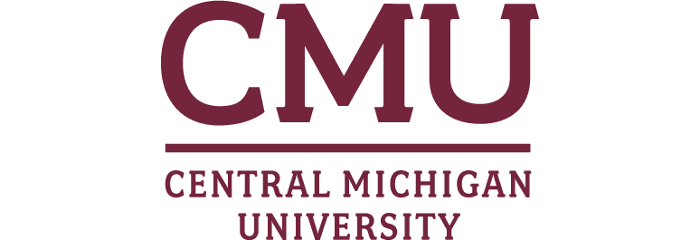2025 Best Online Substance Abuse Counseling Degrees in Michigan
An online substance abuse counseling degree in Michigan can prepare you with the skills needed to effectively address addiction issues. These two programs are for a master's and a graduate certificate, both available online.
Key Takeaways:
- Central Michigan University achieves an enrollment of over 3,000 distance learners, making it a popular choice.
- Western Michigan University has a high recommendation rate of 91% from its students and alums, making it a solid choice as well.
Our ranking methodology for Michigan's online substance abuse counseling degrees focuses on fully online degrees across all levels, with limited in-person requirements. (While we only feature one program per school, institutions may offer other degrees in this field.)
List Of Accredited Online Substance Abuse Counseling Schools
| School | Online Enrollment | Annual Tuition |
|---|---|---|
| Central Michigan University | $16,293 | |
| Western Michigan University | 1,811 | $28,454 |
2025 Best Online Substance Abuse Counseling Degrees in Michigan
- Online Enrollment: 3,086 enrolled
- Annual Tuition: $16,293
- Location: Mount Pleasant
Online degree:
Why we like them: CMU stands out with a substantial enrollment figure of over 3,000 online students, placing it as the top institutions for online education in terms of popularity. This reflects the university's focus on expanding online opportunities for non-traditional students. CMU offers a CACREP-accredited Master's in Counseling program emphasizing practical learning with real-world engagement. This 60-credit program can be pursued fully online, on-campus, or in a hybrid format. Three concentration options are available: Addiction Counseling, Clinical Mental Health Counseling, and School Counseling.
- Online Enrollment: 1,811 enrolled
- Annual Tuition: $28,454
- Location: Kalamazoo
Online degree:
Why we like them: WMU secures its position at #2 due to its massive enrollment numbers of over 1,800 distance learners. The Specialty Program in Alcohol and Drug Abuse at WMU offers a 21 credit undergraduate minor designed to prepare you for work in the field. It addresses substance use and addiction on professional and personal levels. This multidisciplinary program emphasizes prevention, community education, assessment, and treatment strategies. You can complete this minor entirely online or through a blended format that includes on-campus coursework.
Overview of Substance Use Counseling Degrees in Michigan
Since 2020, Michigan has seen a steady increase in drug use among teen and adult residents, especially in terms of opioids and fentanyl-laced drugs. In a , Michigan ranked 10th in the nation for drug use. This has been its consistent place for a few years now.
However, state and local officials, healthcare providers, and other stakeholders continue to expand the number of initiatives designed to prevent and treat drug and alcohol addiction. For example, Michigan provides medication-assisted treatment and Naloxone for those struggling with substance abuse. There are also inpatient and outpatient facilities where certified counselors can use their addiction counseling skills to help others.
Want more online bachelor's degrees in the counseling field? Broaden your scope by exploring the best online counseling degrees.
FAQs About Substance Use Counseling Degrees in Michigan
What Can You Do With a Substance Use Counselor Degree in Michigan?
In Michigan, if you've earned an in-person or online substance abuse counseling degree, you can pursue several different career options. One of the most common choices is to become a Certified Alcohol and Drug Counselor (CADC). Although a bachelor's degree is not required for this type of certification, having a degree will minimize the number of hours of previous work experience you'll need to qualify. If you decide to continue your education with a master's degree or doctorate in counseling, you'll meet the Michigan state requirements for becoming a Certified Advanced Alcohol and Drug Counselor (CAADC).
A substance abuse counseling degree also prepares you for nonclinical careers in public health. Some specific opportunities include working for a government-sponsored agency or nonprofit organization as a community health worker or a health education specialist. In these roles, you're likely to manage prevention or treatment programs, develop educational campaigns, or conduct fundraising activities to support the organization.
To learn more about substance use counseling careers, check out our guide.
How Do I Become a CADC in Michigan?
Licensure for substance use counseling in Michigan is managed by the Michigan Certified Board for Addiction Professionals (). The board has established two levels of substance abuse counseling certification, each with its own requirements.
The first level is Certified Alcohol and Drug Counselor, or CADC. You do not necessarily need a college degree for this level, but you must have 300 hours of college education in substance use disorder (SUD) counseling. You also need prior work experience in SUD counseling, which can be paid or voluntary. The number of required hours varies depending on your education level. For example, those without a college degree need 6,000 hours of work experience, while those with master's degrees need only 2,000 hours. Of these, 200-300 hours must have been completed under direct supervision. Finally, you must pass the ADC exam sponsored by the International Certification and Reciprocity Consortium ().
The second level is Certified Advanced Alcohol and Drug Counselor, or CAADC. For this certification, you'll need a master's degree or doctorate in some type of clinical counseling, such as addiction studies, and your transcripts must show at least 180 hours of SUD counseling courses. You'll also need 100 hours of supervised post-degree work experience. CAADC candidates must pass the AADC exam through IC&RC.
All associate, bachelor's, and master's degrees must be earned at an accredited college or university. If you haven't yet completed a graduate degree, you may be interested in our list of the best online substance abuse counseling master's degrees.
CADC and CAADC licenses need to be renewed every two or three years. When you apply for renewal, you'll need to provide documentation that you've completed 20 hours of continuing education per year since your last renewal.
Does Michigan Have Reciprocity for Substance Use Counselors?
Yes, because Michigan is an IC&RC member state, it offers reciprocity for substance use counselors in good standing from other IC&RC member states. As long as you live or work in Michigan at least 51% of the time, you can provide in-person or online substance abuse counseling in the state. The level of your Michigan substance abuse counseling certification — CADC or CAADC — will be comparable to your current credential.
How Much Does a Substance Use Counselor Make in Michigan?
According to the Bureau of Labor Statistics (BLS), there are 9,110 substance abuse, behavioral disorder, and mental health counselors working in the Great Lake State who earn a . Notably, this is above the U.S. median salary for this career ($53,710). We also want to mention that this is a high-demand role, with a projected over the next decade through 2033.
Is tuition your main concern? Check out our most affordable online substance abuse counseling degrees at the bachelor's as well as the master's level.


